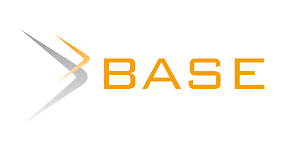Integrasi Nilai-Nilai Hadis dan Pembangunan Berkelanjutan (SDGs) dalam Konsumsi dan Produksi yang Bertanggung jawab
DOI:
https://doi.org/10.14825/k0fhfe84Keywords:
Hadis SDGs Produksi dan KonsumsiAbstract
This study examines the integration of hadith values in supporting Sustainable Development Goal (SDG) 12, which focuses on responsible consumption and production. Utilizing a literature review method and a thematic (maudhu’iy) approach, the research analyzes hadiths relevant to the principles of sustainable consumption and production in Islam. The examined hadiths include prohibitions against excessiveness (israf), the importance of halal and blessed production, social and environmental responsibility, and the attitude of qana’ah (contentment). The findings demonstrate that hadith values align with SDG 12 indicators, such as avoiding wastefulness and excess to reduce waste, promoting sustainable production, fostering sustainable lifestyles, and enhancing environmental education and awareness. This study offers novelty through a contextual and ethical approach, integrating hadith values as a practical foundation for building awareness of responsible consumption and production in the modern era. The results enrich hadith studies related to sustainable development and provide a solution-oriented contribution to achieving SDGs through Islamic values.
References
Alisjahbana, A. (2018). Implementasi Agenda Pembangunan Berkelanjutan (SDGs). Jakarta: UN ESCAP Indonesia.
Hamdani. (2023). “Analisis Hadis tentang Produksi, Distribusi dan Konsumsi dalam Ekonomi Islam.” Investama: Jurnal Ekonomi dan Bisnis, Vol. 5(2), 112–127. https://doi.org/10.21070/investama.v5i2.321
Ibn Majah. Sunan Ibn Majah. Kitab al-Libas, Hadis No. 3595.
Latifah, E. (2023). “Ayat dan Hadis tentang Ekonomi Kontemporer.” Al-Furqan: Jurnal Ilmu Al-Qur'an dan Tafsir, Vol. 23(1), 45–58. https://doi.org/10.32699/alfurqan.v23i1.1254
Maizuddin. (2008). Metodologi Pemahaman Hadis. Bandung: CV Pustaka Setia.
Muslim ibn al-Hajjaj al-Qushayri. Sahih Muslim. Kitab al-Zuhd wa al-Raqa’iq, Hadis No. 1715, 1599, 1054, 67, 4744.
Sa’adah, N. (2025). “Kontribusi Hadis dalam Pembentukan Etika Konsumsi dan Produksi Berkelanjutan dalam Ekonomi Syariah.” Jurnal Ekonomi dan Etika Islam, 12(2), 88–105.
Tim Penyusun. (2021). SDGs dan Agama: Modul Pendidikan Berbasis SDGs dalam Perspektif Islam. Jakarta: Kementerian Agama Republik Indonesi
United Nations. (2015). Transforming our world: the 2030 Agenda for Sustainable Development. New York: United Nations. https://sdgs.un.org/2030agenda















